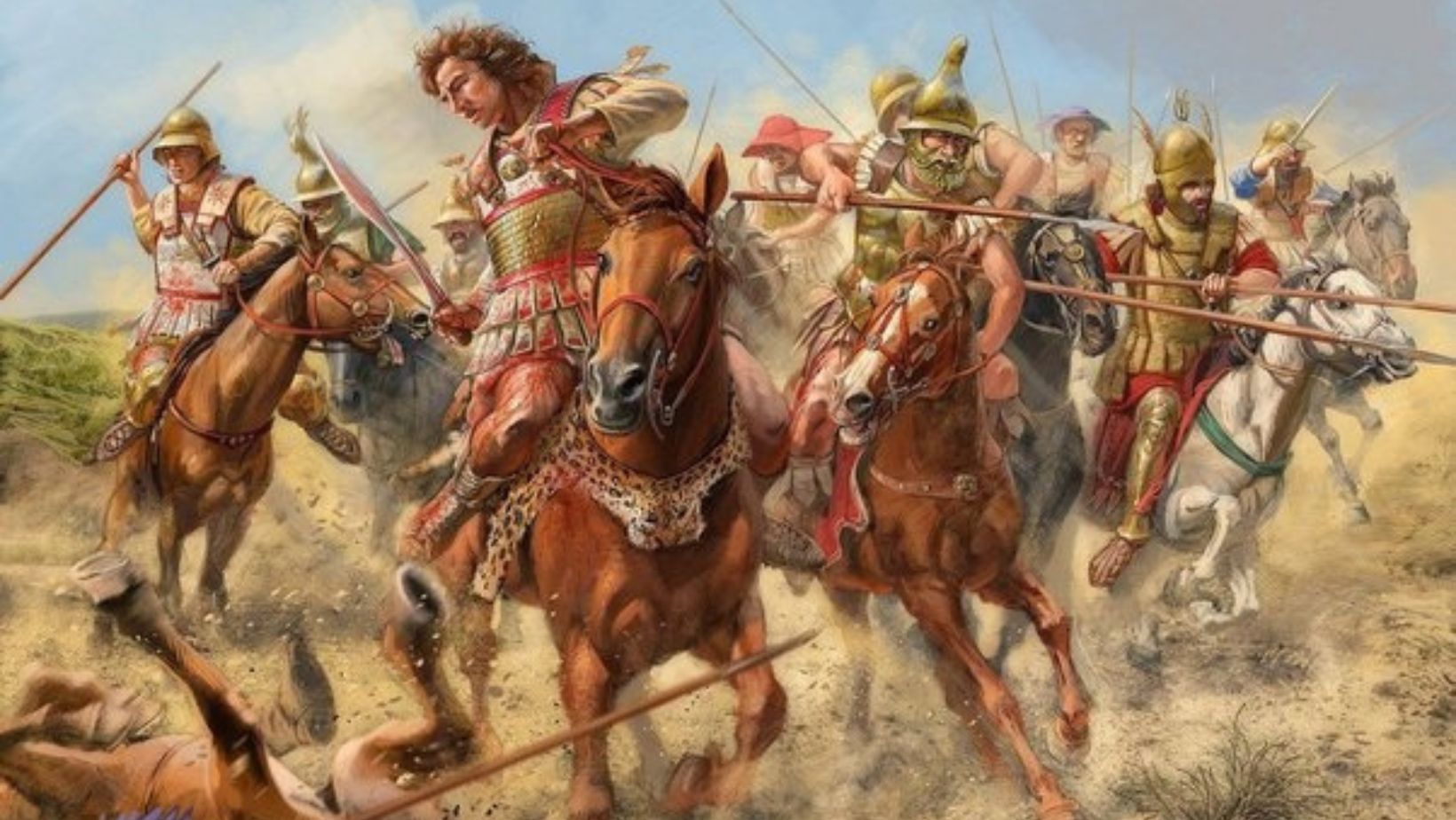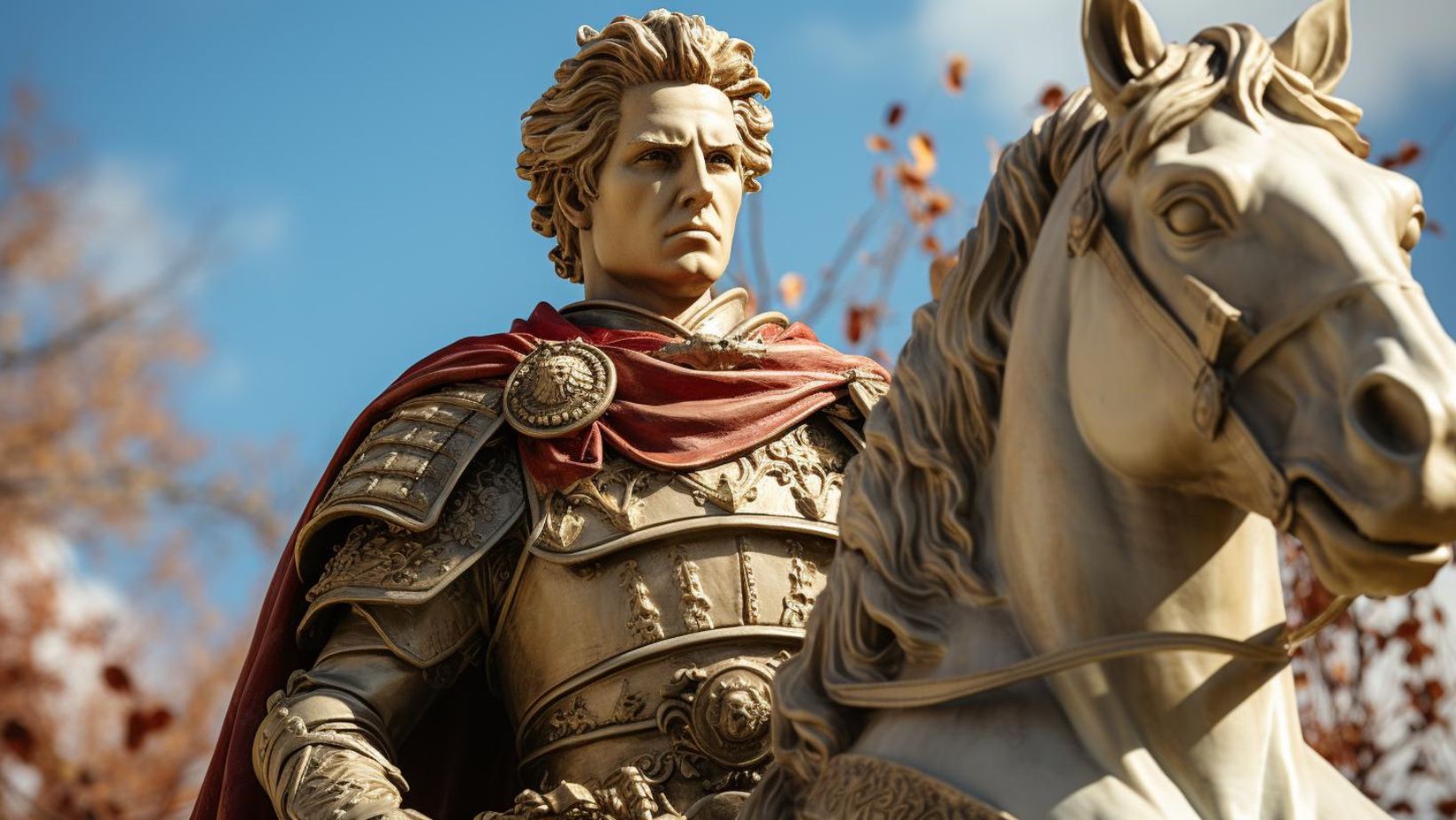When you think about legends of history that left a mark so deep it changed the course of civilizations, Alexander the Great instantly comes to mind. He didn’t just change the borders on maps with his victories and tactics; he completely flipped the script on how things were done. But beyond battles and territories, Alexander’s most profound legacy might be seen in an unexpected place—Rome. Yes, centuries after his death, Alexander the Great’s influence on Rome still echoes through its ancient streets and monumental ruins.
We’re diving into something that goes way beyond just picking up a few combat moves or political maneuvers; this is about hitting the core of it all. It touches everything from art to architecture, literature to lawmaking—the very essence of what made Rome iconic.
Table of Contents:
- Alexander the Great’s Influence on Roman Military Tactics
- The Impact of Alexander’s Conquests on Roman Expansion
- The Legacy of Alexander in Roman Politics and Leadership
- The Hellenistic Influence on Roman Art and Architecture
- The Role of Alexander in Shaping Roman Mythology and Literature
- Conclusion
Alexander the Great’s Influence on Roman Military Tactics: Alexander the Great’s Influence on Rome

Alexander the Great was a game-changer in military strategies and tactics. His innovative approaches to warfare had a profound impact on the Roman empire, shaping its military campaigns for centuries to come.
One of Alexander the Great’s most significant influences on Roman military tactics was the adoption of the Macedonian phalanx formation. They were an unstoppable force when soldiers tightly packed together, wielding long spears, stepped onto the battlefield.
Integration of Light Infantry
The Romans took note of this and began incorporating light infantry into their military tactics, enhancing their ability to respond to different combat situations.
Incorporation of Cavalry: Alexander the Great’s Influence on Rome
Another key aspect of Alexander’s military genius was his effective use of cavalry, particularly the companion cavalry. These expert riders were key players in his victories, mastering side attacks and chasing down foes on the run. Recognizing the value of cavalry units, the Romans began emphasizing their use in battle, further expanding their military capabilities.
The Impact of Alexander’s Conquests on Roman Expansion: Alexander the Great’s Influence on Rome
Alexander the Great’s conquests had far-reaching consequences for the regions he conquered and the Roman Republic that followed in his footsteps. His campaigns opened up new territories and trade routes, setting the stage for Roman expansion.
Thanks to Alexander’s impressive wins in Asia Minor and against the Persian Empire, he rolled out the red carpet for Rome to step into these areas later on. As the Roman Republic grew in power, it began to establish its presence in the lands once conquered by Alexander, building upon the foundations he had laid.
Increased Exposure to Eastern Cultures: Alexander the Great’s Influence on Rome
Alexander the Great’s conquests led to increased cultural exchange between the Greek world and the East. As the Romans came into contact with these Eastern cultures, they were influenced by their art, architecture, and ideas. This cultural cross-pollination had a lasting impact on Roman society, significantly shaping its development.
Establishment of Trade Routes
Alexander’s campaigns also established important trade routes, such as the Silk Road, which connected the Mediterranean world with the Far East. These routes became crucial for Roman trade and commerce, facilitating the exchange of goods, ideas, and cultural influences between distant regions.
The Legacy of Alexander in Roman Politics and Leadership: Alexander the Great’s Influence on Rome
Alexander the Great’s influence extended beyond military tactics and territorial expansion. His impact didn’t just stop at his accomplishments; it echoed through the halls of Roman politics, inspiring a whole lineup of leaders who wanted to walk in his footsteps and make their mark as he did.
Roman leaders, such as Pompey and Julius Caesar, looked to Alexander as a model of a successful and charismatic leader. They sought to incorporate elements of his leadership style into their political and military careers, hoping to achieve similar levels of greatness.
Adoption of Divine Status
Alexander’s adoption of divine status, particularly after he visited the oracle of Ammon at Siwa, significantly influenced Roman political culture. Many Roman leaders, including Julius Caesar and Augustus, began associating themselves with divinity and establishing their own cult of personality, following in the footsteps of the great conqueror.
Comparison to Julius Caesar: Alexander the Great’s Influence on Rome
Julius Caesar, one of the most famous Roman leaders, was often compared to Alexander the Great. Both men were renowned for their military genius, political acumen, and charismatic leadership. Alexander’s legacy inspired Caesar and served as a benchmark for his ambitions and achievements, cementing his place in Roman history.
The Hellenistic Influence on Roman Art and Architecture
Alexander the Great’s conquests led to the spread of Greek culture, known as Hellenism, throughout the Mediterranean world. This Hellenistic influence had a profound impact on Roman art and architecture, shaping the empire’s aesthetic preferences and styles.
Adoption of Hellenistic City Planning
The Hellenistic cities founded by Alexander and his successors, such as Alexandria in Egypt, served as models for Roman urban planning. The grid-like layout of these cities, with their wide streets and public spaces, influenced the design of Roman cities and colonies throughout the empire. The way cities were laid out in ancient Rome owes a lot to the Greeks and their clever approach to urban planning.
Influence on Roman Architecture
Hellenistic architecture, with its grandeur, ornate decoration, and use of columns, significantly impacted Roman building practices. The Romans adopted and adapted many elements of Hellenistic architecture, such as the Corinthian order and the incorporation of Greek-style temples and public buildings into their cities. When the styles of ancient Greece meshed with those of Rome, they crafted buildings that were eye-catching and a bold statement of the empire’s might and glory.
The Role of Alexander in Shaping Roman Mythology and Literature

Alexander the Great’s larger-than-life persona and incredible achievements made him a figure of fascination for the Romans. His legacy not only influenced their military and political spheres but also profoundly impacted Roman mythology and literature.
As Alexander’s fame grew, he became incorporated into Roman mythology. Stories and legends about his life and exploits were adapted and retold by Roman writers, often with a distinctly Roman perspective. By weaving tales and legends around Alexander, the Romans bumped him up to celebrity status in their cultural scene, making him out to be something of a superhero from ancient times.
Influence on Roman Epic Literature
Alexander the Great’s incredible journeys and victories didn’t just make history; they sparked the imaginations of Roman writers, setting their epic tales on fire. Works such as Virgil’s Aeneid, which tells the story of Rome’s founding, drew upon themes and motifs from Alexander’s life. The idea of a divinely ordained destiny and the importance of military glory, central to Alexander’s legend, became recurring themes in Roman epic poetry.
Portrayal in Historical Accounts
Roman historians like Diodorus Siculus and Arrian wrote extensive accounts of Alexander’s life and campaigns. These works provided valuable historical information and helped shape the Roman perception of Alexander as a larger-than-life figure and a model of military and political success. Through these historical accounts, Alexander’s legacy was preserved and celebrated, ensuring his enduring influence on Roman culture.
Key Takeaway: Alexander the Great’s Influence on Rome
Alexander the Great revolutionized the Roman military, culture, and politics. His tactics improved their warfare; his conquests opened new lands for Rome, and his legacy inspired Roman leaders to emulate his greatness. This blend of Greek and Roman elements forever changed the empire.
Conclusion: Alexander the Great’s Influence on Rome
The tale doesn’t end with empire borders expanding or military tactics evolving—it thrives in subtler realms, too. From senate halls whispering tales of strategic genius to cobblestone paths lined by Hellenistic sculptures breathing Greek aesthetics into Roman grandeur, Alexander’s impact weaves through every aspect of what would become one of history’s greatest empires.
Rome wasn’t built in a day, but part of its foundation was undoubtedly inspired by a Macedonian king whose dreams surpassed even those vast lands he conquered. In our exploration today, Alexander the Great’s influence on Rome reveals itself not as mere footnotes in dusty books but as living lessons etched across time—a testament to enduring greatness influencing generations long past its originator’s mortal journey.

